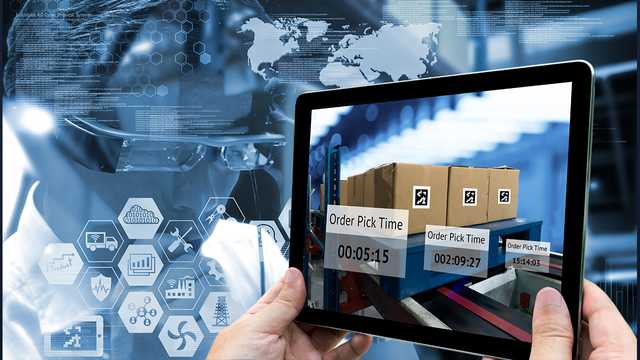
In today's competitive market, supply chain experts are trying to manage large amounts of data to build a unified, fully functioning, effective, and agile supply chain. Consequently, the rapid growth in volume and variety of data types throughout the supply chain has prompted the creation of systems that can intelligently and rapidly evaluate vast quantities of data. Big data analytics is one of the best ways to help businesses figure out how to solve their problems. It allows you to find patterns and helpful information in a large volume of data. So, let's look at how analytics of big data can help supply chain management overcome challenges:
Read more :Factors to Look for in a Logistics Management System
Strengthen Supply Chain Traceability:
Big data can make it easier to track down products that need to be recalled or fixed. It can also access, integrate, and manage product databases that list products that need to be recalled or fixed. Supply chain managers can easily track down a product by using barcode scanners and attaching radio frequency identification devices to it. Businesses can use tools for analysing big data to get accurate information about their products, which helps operators keep up with their distribution cycle. For example, it will be easy for managers of food and drink to guess when food will go bad. With better traceability, goods can be followed from the factory to the store. With better traceability, businesses can work better together with supply chains. With better traceability, goods can be followed from the factory to the store. Businesses can work better with other people in the supply chain to speed up distribution and make tracking easier.
Machine Maintenance:
Big data is being used more and more in machine maintenance, improving the maintenance team's work. The move toward data analytics is making the maintenance department more effective, which means operational uptime is improving. By combining machine data with data from other areas, the business can get a good idea of the health and performance of its machines. Installing sensors and using their data to copy how the device works is the primary way it is done. After a model has been made, real-time data can be used to predict when the machine will break down. With data analytics, you can do more than fix things before they break. Advanced data can help you figure out how to extend the life of an asset you already have.
Demand Planning:
Orders that aren't done right or aren't done at all can hurt the reputation of any company. In the era of the customer, it's essential to keep customers happy and loyal by giving the right product to the right person at the right time and place. Smart companies can use Big Data to learn everything there is to know about their customers. It helps them better predict their needs, figure out what they like, and give them a unique brand experience.
With predictive analytics, you can find out how likely the problem is to happen and what it might mean if it does. By looking at huge amounts of historical data and using risk mapping techniques, predictive analytics in Big Data can help find risks in the Supply Chain. Also, accurate predictions of risk can help make tools and procedures that will help lessen the effects of possible threats.
Managing the relationship with suppliers:
Using methods for supplier relationship management and big data, you can make supply chains that work well. Even though big data analytics isn't used in supply chain companies, machine learning and big data analytics will be used a lot in the future to manage relationships with suppliers. Companies in the supply chain need accurate supplier data to come up with good relationship management plans. A lot of what they want to know is qualitative. It includes evaluations, audits, and assessments.
These organisations can use big data analytics in supply chain management to gather and analyse data. So, they can keep track of suppliers' activities and information over time for use now and in the future. Also, they will be able to do supplier selection activities that are smart and based on predictions. This project will make it easier to see how contracts are made and open up more opportunities for long-term partnerships.
Product Design & Development:
Big Data Analytics is helpful in smart manufacturing because it helps solve the company's problems at speed the business needs. Big data analytics is a useful tool for manufacturers because it allows them to make plans, share data, make predictive models, and connect factories to control their operations. Using big data analytics in supply chain management can also help pick up and deliver orders and give orders to the right agents.
Also, designers need tools to predict and measure how user preferences and expectations change over the life cycle of a product. Collecting, managing, and analysing data in new ways to gain insights and valuable information that can then be used to make decisions can help reduce uncertainty.
Readmore: Top 10 supply chain and logistics technology trends in 2022
Conclusion
Data is a vital part of making the operating systems we use today. Using big data in logistics solutions helps keep track of how cash, information, and goods move through a supply chain. It is mainly done to ensure that customers can get many products and good service at the lowest possible cost. Supply chain managers can also use data analysis to keep track of these flows and use the results to improve how well they do their jobs.




